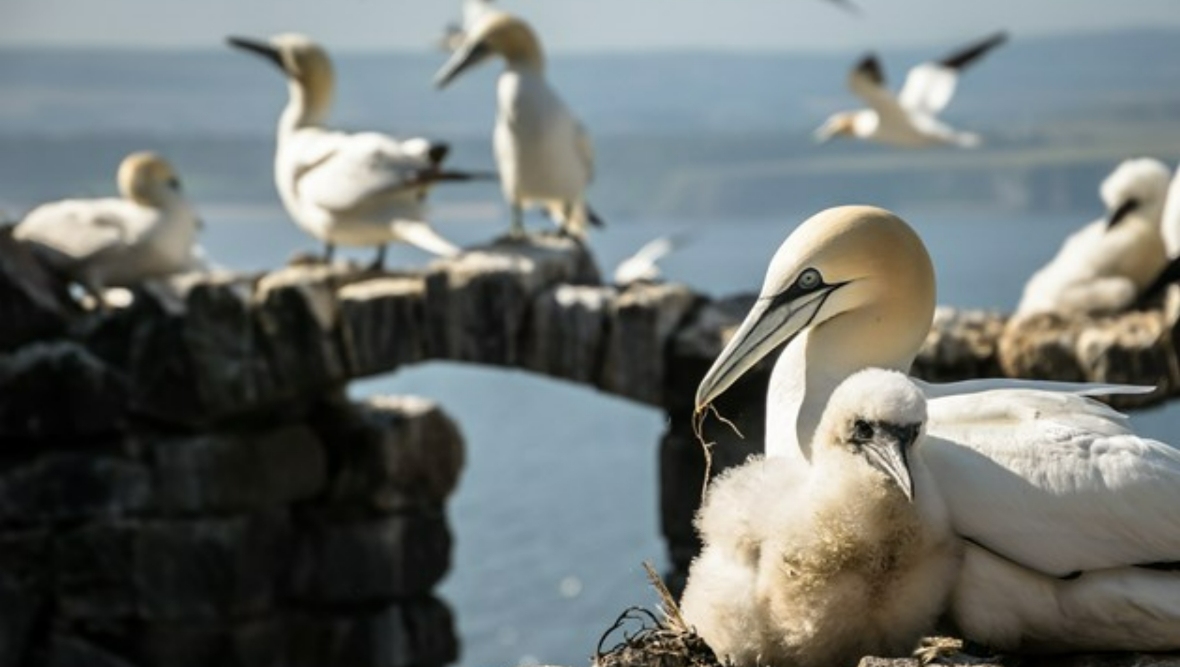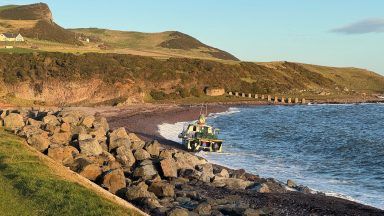Nearly 10,000 birds have died or become sick across Scotland this summer due to avian flu, it has been revealed.
Guillemots, kittiwakes and terns were among 9,610 dead and sick wild birds found on sites across Scotland between April 3 and October 1, NatureScot confirmed.
A sudden increase in deaths began in June and reached a peak in mid-July when around 2,300 birds were reported to the agency over a two-week period.
The latest figures come after the Scottish Government launched an avian flu response plan in August amid the ongoing outbreak.
Despite the devastating losses, experts say there are signs some birds are building immunity to the virus.
Eileen Stuart, NatureScot’s deputy director of nature and climate change, said: “With very few great skua and gannet deaths this summer, we are hopeful that some wild birds are building immunity to HPAI.
“But other species, such as kittiwakes and terns that were impacted last year, have still been greatly affected this year. The research we and our partners in the task force are doing will help us better understand why this might be the case.
“Our collective focus now must be on ensuring we have positive measures in place to support the recovery of species impacted by the outbreak – species which are already facing many pressures on their survival.”
The highest number of reported mortalities were among guillemots, a seabird of the auk family – with 3,519 deaths were reported over the summer.
It was also reported that at Aberdeenshire’s Forvie National Nature Reserve alone more than 40% of this year’s tern chicks died.
When combined with the number of adult deaths reported, the losses are “extremely concerning” for the recovery of the birds.
NatureScot confirmed that it was trying to understand why some species have been hit harder than others, revealing that populations are likely to take years to recover – with an estimated 20,000 seabirds perishing from avian flu last summer.
Claire Smith, RSPB senior policy officer, added: “Bird flu is an additional threat to Scotland’s breeding seabirds on top of many other pressures and it was devastating to see thousands of dead birds again this year.
“Over 700 kittiwakes died at RSPB Fowlsheugh and surveys showed that gannet numbers at Troup Head were down by 35% after being impacted by the virus in 2022.
“We will have a fuller picture of population impacts across Scotland later this year. This needs to be a wake-up call to step up the speed and scale of practical conservation actions to help our globally important seabird populations recover.”
Follow STV News on WhatsApp
Scan the QR code on your mobile device for all the latest news from around the country


 NatureScot
NatureScot
























